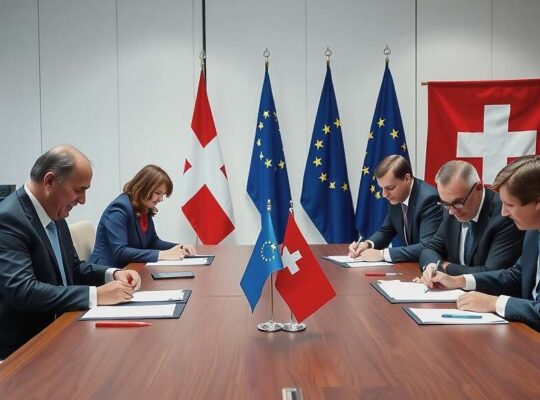Berlin is signaling a renewed push to increase the representation of German nationals within key European Union institutions, prompting scrutiny over Germany’s influence and access within the bloc. A spokesperson for the Foreign Ministry acknowledged on Wednesday that the current number of German employees in EU bodies remains disproportionately low compared to other member states, a situation the government deems requiring urgent action.
“The proportion of German personnel within EU institutions is demonstrably insufficient” the spokesperson stated, responding to inquiries from the dts news agency. “We must work constructively, particularly with the EU Commission, to address this imbalance”. The government is reportedly exploring further measures designed to encourage more German citizens to pursue careers within the EU system.
While German authorities periodically assign personnel to EU institutions, the issue stems from the lack of adherence to informal benchmarks within the EU’s internal guidelines. These guidelines, while not legally binding quotas, suggest a target of 13.8% representation for each member state across various roles. Germany, however, consistently falls short of this target, with current representation hovering around nine percent within the prestigious EU Commission’s higher service, a significant deviation from the anticipated 13.8%. While management levels demonstrate a closer alignment with the target, disparities remain substantial in entry-level positions.
The situation has been exacerbated by the absence of large-scale, general recruitment processes for six years, effectively limiting opportunities for German candidates to apply. This lack of formal avenues has contributed to the underrepresentation and fueled concerns about Germany’s ability to shape EU policy.
“We anticipate the resumption of these selection processes soon and will actively encourage broad participation among German citizens” the spokesperson added. However, critics argue that simply increasing the number of German nationals employed by the EU is not a sufficient remedy. Some observers suggest a more critical examination of internal EU recruitment practices and the factors contributing to the perceived underrepresentation, including potential biases and a lack of targeted outreach programs to attract diverse talent from member states. The government’s move highlights a strategic concern: ensuring Germany’s continued influence and effective participation within the EU’s decision-making processes.












